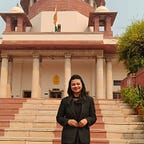Balancing Freedom of Speech: How Celebrities and Politicians Navigate Expression
In a world where words wield extraordinary influence, the interplay between freedom of speech and the obligations of politicians and celebrities sparks vital discussions on boundaries and consequences. Public discourse often questions whether specific roles warrant curbing the freedom of speech, a right upheld by Article 19(1)(a).
In today’s digital era, public figures wield unmatched impact. Their words reverberate throughout society, and their followers hang onto every syllable. This complexity introduces a layer of nuance to the concept of unrestrained speech, as statements from influential quarters can swiftly escalate into controversies and legal complexities.
Yet, the key query remains: Should speech freedom for prominent figures be restricted? Does their eminence justify added constraints on their expressions? A past incident sheds light on this dilemma.
Some time ago, a rape case rattled Bulandshahr in Uttar Pradesh, India. In the aftermath, Azam Khan, a notable politician, minimized the horrendous crime as a “mere political conspiracy.” While seemingly minor, the statement trivialized the severity of the incident, triggering widespread indignation.
The Kaushal Kishore vs. State of Uttar Pradesh case brings crucial insights. In a landmark four-to-one ruling, a constitutional bench underscored that fundamental rights enshrined in Articles 19 and 21 apply universally. Article 19(2)’s delineated grounds for restricting speech emerged as exhaustive.
The court emphasized that being a celebrity or politician shouldn’t automatically lead to stricter speech limitations. Article 19(2) offers a comprehensive framework to assess expression restrictions, irrespective of public stature.
This verdict highlights the intricate balance between upholding rights and addressing responsibilities linked to influence. While the impact of influential statements is undeniable, applying selective constraints based on societal standing raises concerns about democratic principles.
In a world driven by information and viewpoints, the challenge lies in honoring the constitutional right to free speech while holding public figures accountable for their expressions. The courts’ stance serves as a reminder that constitutional principles must universally prevail, regardless of social status. Explore the dynamic interplay between speech, influence, and responsibility in this thought-provoking discourse.
